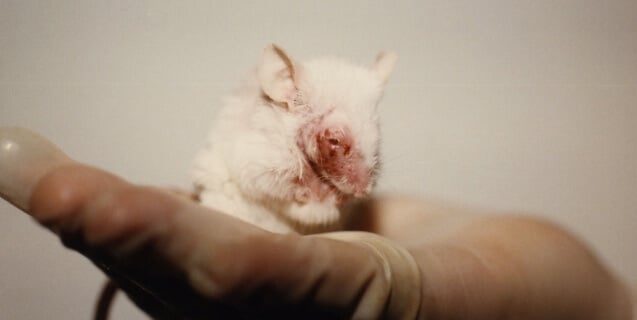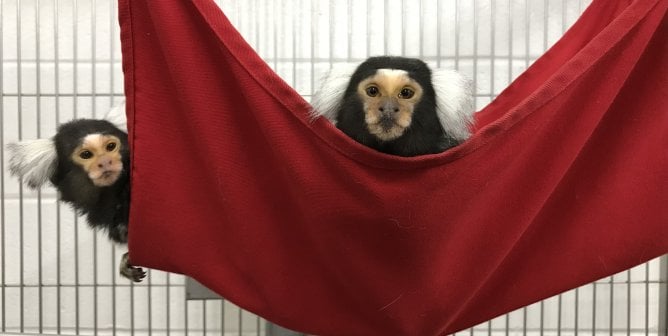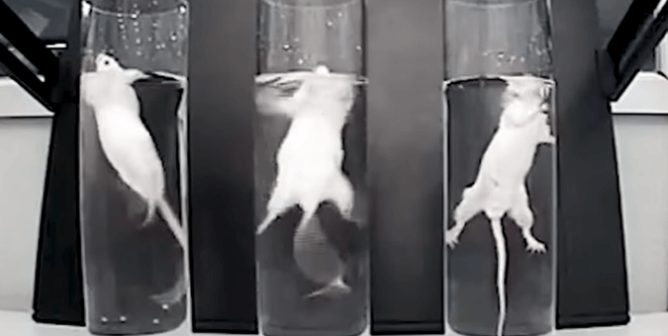Cruelty in Animal Testing Laboratories
In a huge victory for animals, the European Union (EU), Israel, and India have banned the sale of any cosmetics or cosmetics ingredients that have been tested on animals. These marketing bans mean that companies all around the world will have to abandon animal testing for cosmetics they want to sell in these huge markets. The bans follow vigorous campaigning by PETA entities worldwide and members and supporters that included public protests, phone calls, and tens of thousands of e-mails.
Unfortunately, there’s no ban on testing cosmetics or household products on animals in the U.S., so companies that make and sell their products here can choose to conduct tests on animals. Find out more here.
Alternatives
As hard as it is to believe, animal experiments for cosmetics and household products continue even though non-animal tests are widely available. Instead of measuring how long it takes a chemical to burn the cornea of a rabbit’s eye, manufacturers can now drop that chemical onto cornea-like 3D tissue structures produced from human cells. Likewise, human skin cultures can be grown and purchased for skin irritation testing. Read more here about these and dozens more non-animal tests currently in use that are faster and more accurate at predicting human reactions to a product than animal tests ever were.
U.S. Environmental Groups Ignore 21st Century Science
Even more incomprehensible is the continued demand by some U.S. environmental organizations for more animal tests for cosmetics products, even though the rest of the world is moving away from these archaic methods and toward modern, more effective non-animal methods. For example, a scientist from the Natural Resources Defense Council (NRDC) acknowledged that there “are non-animal tests that are really valuable, informative, cheaper, and quicker” than animal tests yet publicly disagreed with the EU ban on testing cosmetics on animals, claiming that “we need to test these products on live things” instead of using the widely accepted non-animal alternatives that have been shown to be predictive of human health effects.
It would appear that the scientists at the NRDC have never bothered to read the National Academy of Sciences report “Toxicity Testing in the 21st Century: A Vision and a Strategy” and are ignoring the sea change that has occurred in the last quarter-century regarding our understanding of biological processes. These advances in our understanding have led to the development of test methods that can look directly at cellular mechanisms rather than at the crude and uninformative results that come from using animals.
What You Can Do
The best way to stop companies from using animals is to refuse to purchase their products and to write and tell them why you won’t be using their eye shadow, detergent, or shampoo.
The good news is that today, a multitude of cruelty-free cosmetics and household products are not tested on animals. Check out PETA’s database of companies that don’t test on animals and request a free copy of PETA’s global Cruelty-Free Shopping Guide to find cruelty-free versions of all the products that you could ever need.









